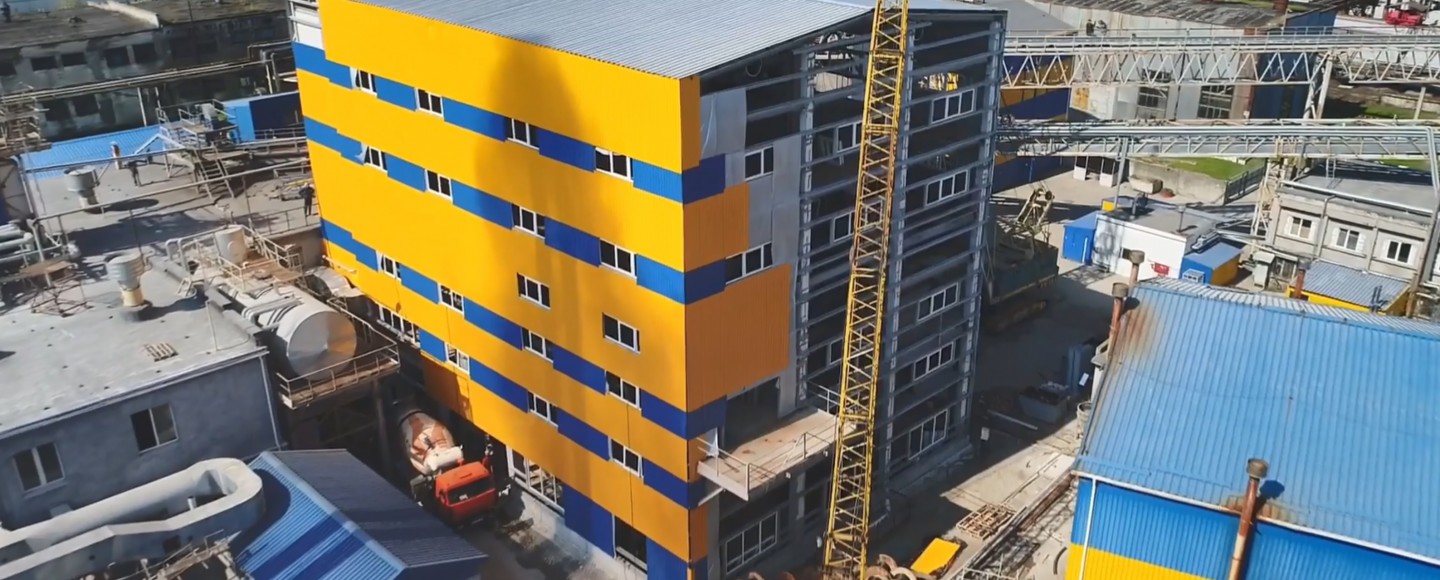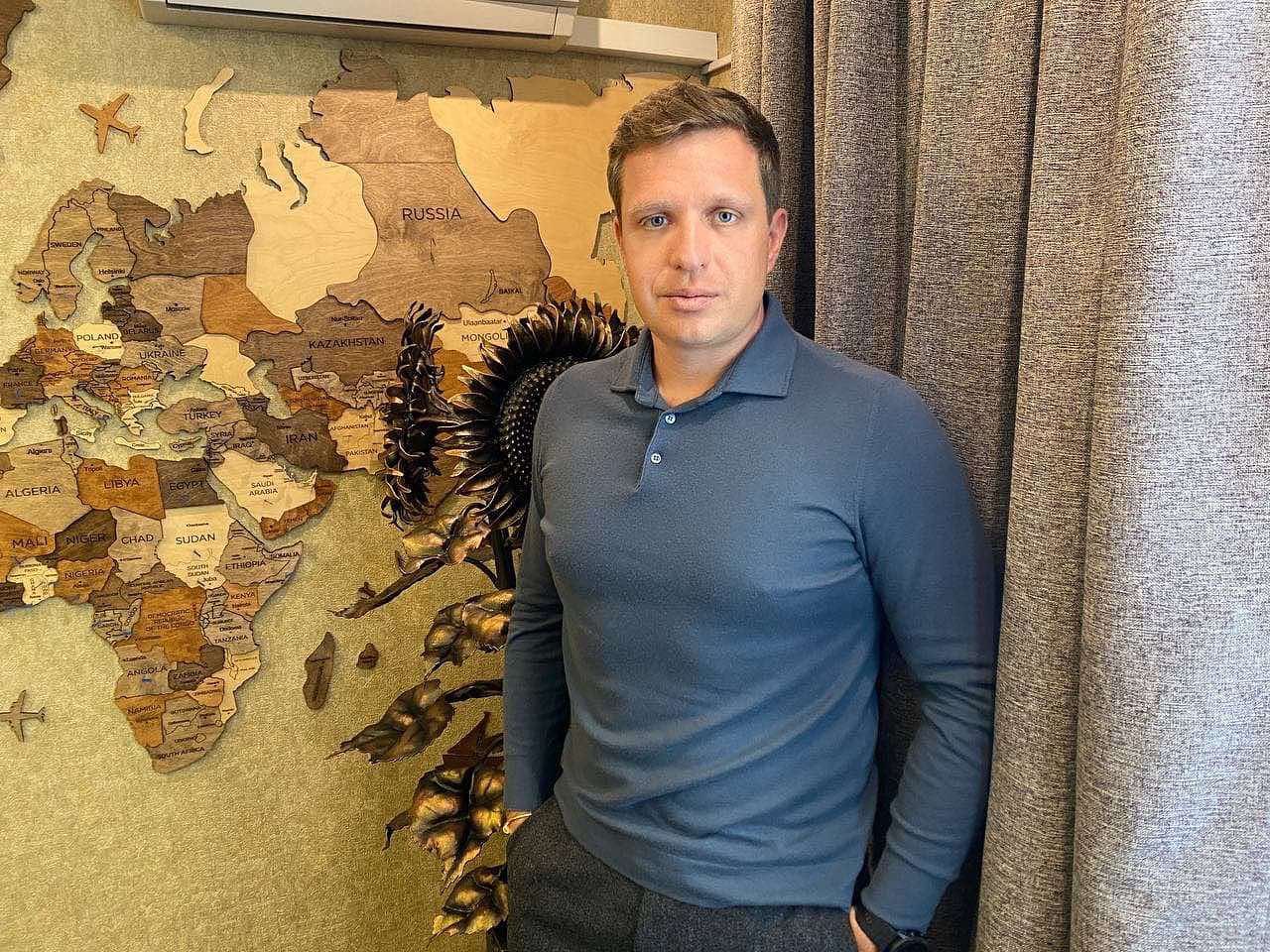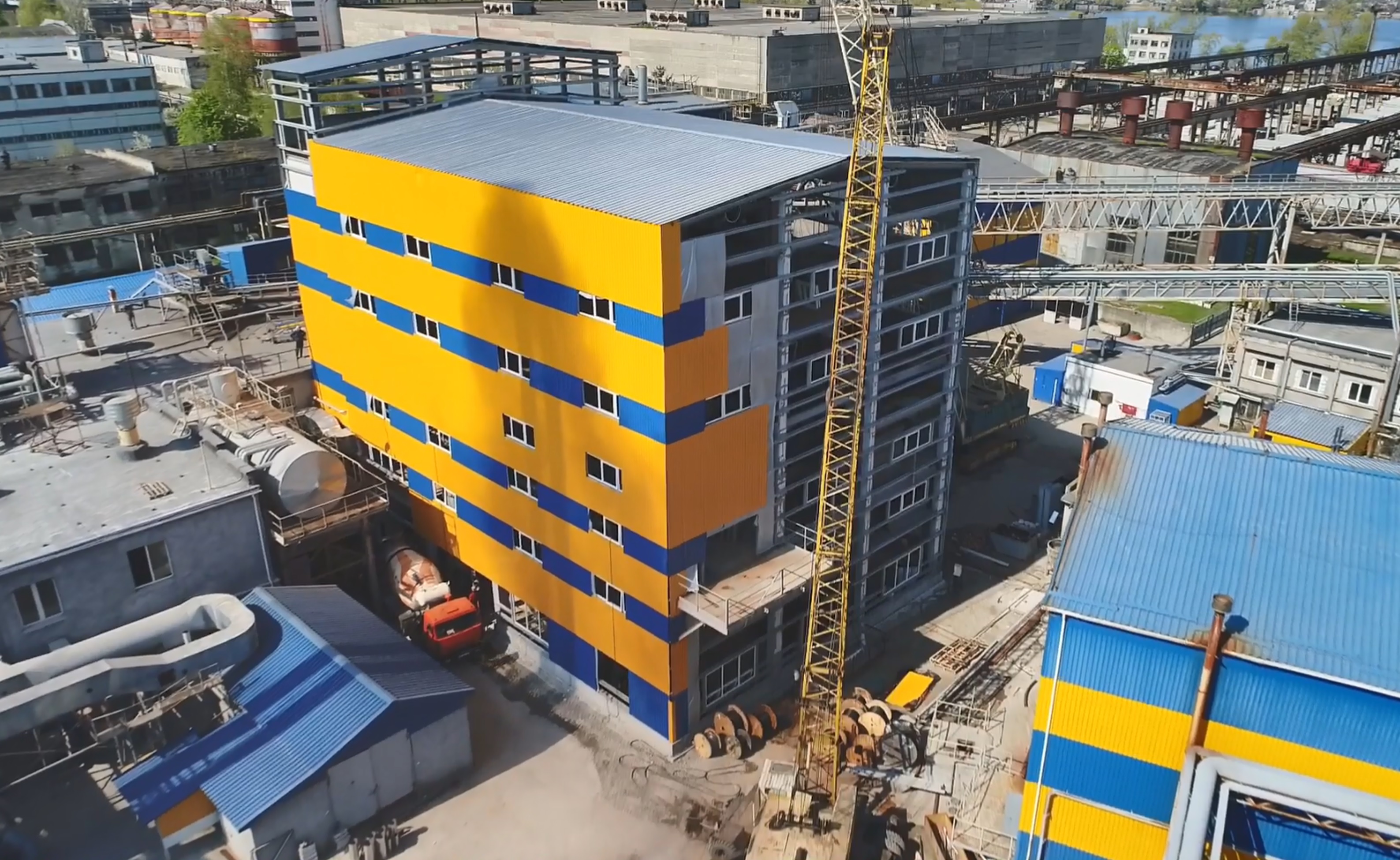Maksym Korol: We are already processing soy and sunflower. Why not process canola? We are already processing soy and sunflower.
Maksym Korol: We are already processing soy and sunflower. Why not process canola? We are already processing soy and sunflower.

Maksym Korol: We already process soy and sunflower. Why not process canola?
On June 1, Viktor and K Company announced the launch of its own rapeseed processing plant with an oil storage and a modern silo-type elevator. What motivated the company to have engaged in the rapeseed processing and what is a payback of such a project? What products will be produced and which markets will they be sold to? We spoke with the managing director of Viktor and K Private Enterprise Maksym Korol who assured us that the project is profitable and on time. But at the same time he drew attention to the fact that almost all soybeans are exported from the country. Now his soybean processing plant is forced to stop because there is no raw material in the country. So, further it will be more about the new plant and the problems of Ukrainian processors.

Latifundist.com: What motivated the company to start rapeseed processing?
Maksym Korol: Ukraine exports 90-95% of its rapeseed harvest and is essentially a raw material appendage of Europe. That's why we went in this direction because we want to change this trend, create new jobs and pay taxes in the country. Because how does it work now? We export raw materials to Europe, they are processed there, and then Ukraine buys the processed product. We want to create the added value inside the country. We see that this area is marginal. We have a successful experience in processing soybeans and sunflower seeds, so why not try to process rapeseed as well?
Latifundist.com: Did you plan to build the plant before the full-scale invasion?
Maksym Korol: Yes, the project had been planned before the big war began. We calculated the profitability of the production and came to the conclusion that the economy was working. And then after farmers had begun to increase the area under rapeseed, we realised that there should have been no problems with raw materials. And this crop will continue to grow in Ukraine in the future. Agrarians will increasingly turn to oilseeds.
You can see that this year a lot of farmers have switched from grain to oilseeds. The price and logistics make the grain production unprofitable as the road to Constanta takes 40-50% of the cost of the grain.
Latifundist.com: Did you invest your own funds or take out a loan? And how much money are we talking about?
Maksym Korol: We invested both our own funds and the loan that we had taken out before the full-scale invasion. It is difficult for me to indicate the amount of the investment so far because we are implementing several projects at this facility. In particular, we are building a 10 MW thermal power plant. Therefore, it is difficult to divide it.
Latifundist.com: Will this be a plant exclusively for rapeseed processing?
Maksym Korol: No, we will process rapeseed and soybeans. The plant's capacity is 300 thousand tonnes per year.
Latifundist.com: What final product will you produce?
Maksym Korol: These are rapeseed meal and oil. Regarding the oil production, our company is currently one of the largest producers of the deodorised refined sunflower seed oil. Our capacity allows us to produce 700 tonnes of oil per day. We also produce the refined soybean oil. Therefore, it is not difficult for us to refine the rapeseed oil too. We plan to produce the hydrated and refined rapeseed oil. In addition, it will be packed in bottles.
Latifundist.com: Will your end consumer be Europe as Ukraine has a more developed culture of the sunflower oil consumption?
Maksym Korol: That's right. Our end consumer is the whole of Europe, the USA and Canada. The rapeseed oil is in demand everywhere in Europe and you will hardly find the sunflower oil in an American supermarket as the canola oil is everywhere. We have already passed the relevant certification and can supply products to these markets.
Latifundist.com: Is it interesting that Canada that is one of the largest canola producers in the world is ready to buy the Ukrainian rapeseed oil even despite the logistics costs?
Maksym Korol: Yes, our Canadian partners are ready to buy our product. If there is a demand, we will meet it. And it is there today.
Latifundist.com: Will the rapeseed meal also be exported?
Maksym Korol: The domestic market is not yet ready to consume the rapeseed meal so we will also export it to Europe. The products are non-GMO so there will be no problems with sales. Although the oil cannot be GMO, the meal may contain it. However, we have positioned ourselves to buy only GMO-free raw materials.

Latifundist.com: What is the radius of the supply of the raw materials to the processing plant?
Maksym Korol: It is the whole of Ukraine. As the price of the rapeseed is high the supply radius can be 500-700 km or more. We, for example, do not plan to limit ourselves. We have 6 elevators and are building two more. So soon we will have a capacity of 400 thousand tonnes of simultaneous storage. It means we will be able to receive soybeans and rapeseed remotely.
Latifundist.com: Previously, we tried to export all the rapeseed before December, because its storage is, firstly, a very responsible process. Secondly, it was a way to make room for early grains. Shouldn't you have any problems with the plant's supply of raw materials ?
Maksym Korol: Indeed, we had to export the rapeseed until December due to the storage issues. Rapeseed needs to be constantly shifted during storage in the floor warehouses, otherwise it will release oil. But now there are specialised silos with powerful ventilation, airfields, etc. that allow us to store this crop for 8-9 months.
Therefore, the storage issue is no longer a problem today as we can quietly work with rapeseed for 7-9 months and then switch to soybeans.
But there are some problems with the soya supply. We are now forced to shut down our plant because there is almost no raw materials in Ukraine. This is because the government allowed free export of soya beans. If quotas on the export of the sunflower and soya seeds are not introduced next year, the situation will be similar. Processing plants will stand idle.
Latifundist.com: Agrarians will counter that the prices in Ukraine are already lower than the world market ones and that they may even collapse due to this quota.
Maksym Korol: Why? If we introduce the right quota and objective limits, this will not happen. You do understand that there are a lot of shadow schemes on the market today, right? And it is not always the agrarian who exports. If a farmer wants to export his crops, he needs to ensure that it is fully covered. But if another scheme is used such as to keep it in the country then both the farmer will be able to sell his goods and the processing plants will be provided with raw materials.
And what do we see today? Soybean processors have no raw materials. They are either forced to stand still or process 5-10% of the crop and the season is still 4 months away. And how many workers will need to be sent on unpaid leave? For example, our plant employs 3,000 people. If you count those who supply and maintain the plant, it's 10,000. That's why I say we need to find a "golden mean". We need to have quotas and farmers should be able to sell their goods. And not so that oilseeds are exported abroad through shady schemes.
Latifundist.com: If you compare the margins of sunflower and rapeseed processing, which is more interesting?
Maksym Korol: The market is unstable now. For example, two months ago sunflower processing brought us some profit. Now we are breaking even. As to soybeans processing we are now in the red and a month ago we were in the black. Therefore, margins are changing rapidly and are affected by many factors such as the war and logistics, etc. Although we have calculated the margin of the rapeseed should be almost the same as of the sunflower.
Latifundist.com: Have you got a feeling that this year will be a record harvest of the sunflower? Looking at the State Statistics Service data of spring crops, the forecasted 6 million hectares have not been sown.
Maksym Korol: There will be no record numbers. Maybe we will add 20% to the previous year.
Latifundist.com: What is your forecast concerning the provision of the Ukrainian Oil Extraction Plants with sunflower next season?
Maksym Korol: Unfortunately, there will be a shortage of raw materials. That is why I say that the state should get involved in this problem and introduce quotas. It should bring together agricultural producers and processors at one table and reach some kind of consensus. In 2024 Kernel firm wants to launch a sunflower processing plant in Khmelnytskyi region with a capacity of 1 million tonnes of sunflower. Therefore, we will face a situation where the crushing capacity will be higher than the sunflower production in the country. This is a very acute issue.
Ukraine's oilseed processing capacity has reached 25.0 million tonnes per year. We can process the entire harvest domestically. In particular, our sunflower seed processing capacity exceeds 19 million tonnes per year. There is a constant shortage of raw materials.
Latifundist.com: Sunflower prices have fallen. What about oil prices? As the agricultural producer thinks, if sunflower prices have fallen, it is primarily beneficial for the processor.
Maksym Korol: Farmers see only the price of sunflower. And the price of oil? It has halved. Today, sunflower oil costs $700 per tonne, while it used to cost $1.5 thousand per tonne. And the downward trend is continuing.
Soybeans prices are falling on the Chicago Stock Exchange. Why isn’t this oil counted? Because the agricultural producer wants to sell at 19 thousand UAH, and the price of soybean oil has decreased by $200 over a week. That is why we are forced to finish the remaining soya and shut down the plant. There is not enough soya, farmers have taken it out.
Latifundist.com: I remember how in 2020 Pologivskyi Oil Extraction Plant imported 20 thousand tonnes of soybeans from Brazil.
Maksym Korol: We may come to such a situation but not this year. The area under soybeans has increased.
Ukraine's soybean processing capacity exceeds 2.5 million tonnes per year. In particular, the capacity of multifunctional enterprises is 2.5 million tonnes per year, and that of specialised enterprises is 2.7 million tonnes per year. Due to the massive export of soybeans from Ukraine, their processing in the country does not exceed 1.5 million tonnes. At the same time, the processed products such as oil and meal are in demand on the global market.
In the marketing year of 2023/2024 the production of soybeans is forecasted at over 4.1 million tonnes and over 90% of which will be exported. Therefore, if no urgent measures are taken to introduce licensing (quotas), only 1.0 million tonnes will be left for processing.
Latifundist.com: Are there any plans to process other crops?
Maksym Korol: The next project we plan to implement is deep processing of grain crops, namely wheat and corn. The final products of processing will be citric acid, glucose monohydrate, fructose, starch, etc. These are the products that are currently popular on the European markets.
Latifundist.com: Deep processing is also expensive and has a long payback period. Have you already calculated how much such a project will cost?
Maksym Korol: Currently the construction of such a turnkey plant costs about €35 million. As for the payback period, it is not as long as it seems at first glance, it takes 4 or 5 years.
Konstantin Tkachenko, Natalia Rodak, Latifundist.com